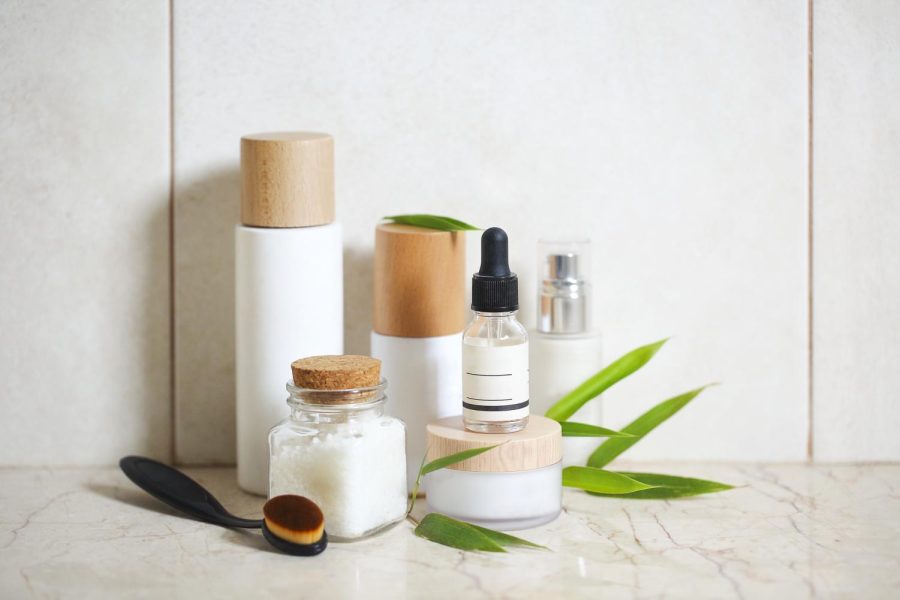Unpopular Opinion: The era of self care is a consumerist charade
The era of self care emphasizes consuming products rather than taking care of the mind and body.
August 20, 2022
I can’t recall the last time I’d scrolled through any social media platform without seeing a softly filtered video curated with angled shots of a beautiful person gently applying product after product from frosted-glass skincare bottles, clipping up their shiny hair in a claw clip, applying barely-there luxury makeup, throwing a pair of AirPods Pro into a tote bag and buying a $10 coffee from the local Starbucks to start the day.
In the era of self care, this person is the pinnacle of having your act together. Nevertheless, it seems to me that this agenda goes beyond putting yourself first and treating yourself to the luxuries of life because you deserve it.
The message that one can feel like — and more importantly be seen as — a productive and collected member of society only if they own an arsenal of specific and expensive things does not seem like the purpose of buying such items is about taking care of yourself as it does a monetization of self care.
It is true that there are physical and tangible aspects to taking care of yourself, and these are genuinely invaluable for your emotional wellbeing. I firmly believe that taking care of your body is simultaneously taking care of your mind. In doing so, you are able to physically feel your best, and thus put your best foot forward into the world.
Within reason, it is also important to instill habits and points in a routine that serve no other purpose but to bring you joy. However, these are not the most important or sustainable parts of self care. Above all, these things should not come at the cost of your financial security.
I believe self care actually concerns caring for your internal being today by making decisions that also benefit you tomorrow. The priority should be breaking and instilling habits that may feel so uncomfortable and difficult at first until one day they don’t, and you wake up two years later feeling more whole than you had in the first place.
Changing your self-destructive habits. Building an emergency fund with the money you’d rather blow online shopping. Staying home to study for the last exam in a class that you are .5% away from completing with the grade you’d hoped for even though your friends are all going out that night.
Practicing standing up for yourself. Teaching yourself how to make decisions without societal or external influences. Not responding to someone’s effort to weasel back into your life regardless of your feelings in the moment because you know that you made the choice for a reason. Learning financial and mental discipline. These are ways to practice genuine self care.
How can this be done just through seeking instant gratification, and at the expense of financial security at that? The recent self care movement also demonstrates an emphasis on validation from other people. Social media does not define the correct way to take care of yourself.
This is not what is advertised in today’s culture because those things can’t be condensed into a cute TikTok, and more importantly, they can’t be packaged into a pretty glass bottle and sold.
Self care isn’t about buying the latest The Ordinary serum to add to the array of skincare products collecting dust on your bathroom shelf. It is about taking the time to understand why you feel a void inside of you that can only be quenched by retail therapy and following the crowd. It is about changing your mindset and priorities, so the coming versions of yourself start off in a better place. It is about understanding that change surmounts from what you choose to make of the resources in front of you versus the actual resources themselves.














